16 April 2020
Climate action at community-level: African solutions that really work
Sufficient access to energy and resilient infrastructure are essential to realise the potential of African cities. Three years ago, a series of local-level solutions made five communities very happy. We revisit them to find out if the solutions were, in fact, sustainable.

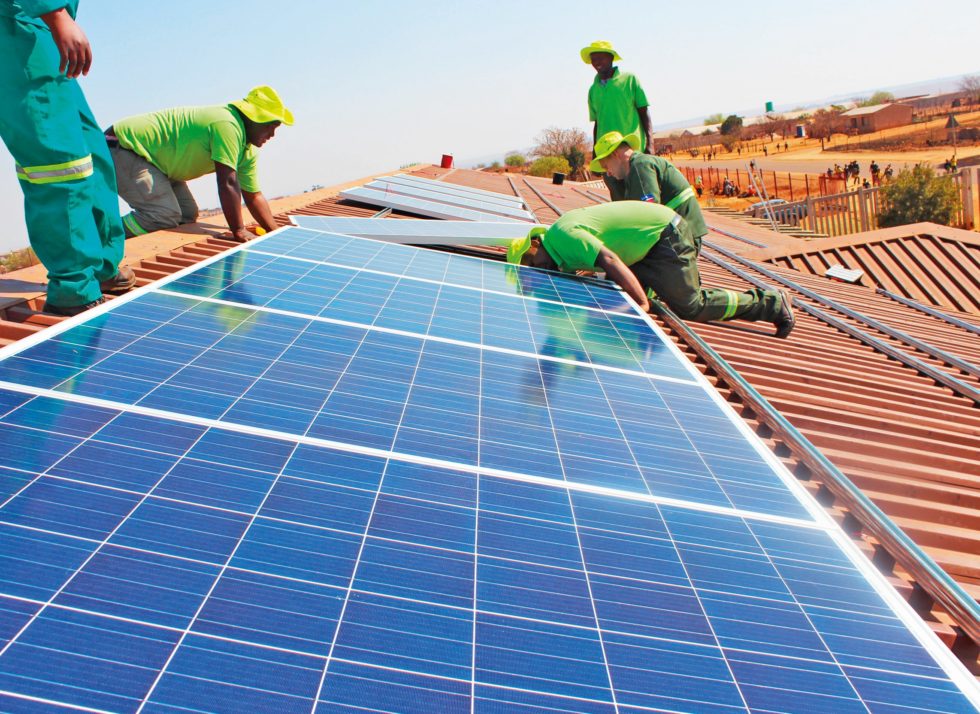

Through the Urban Low Emissions Development Strategies (Urban-LEDS ll) project, ICLEI Africa assisted local communities at five locations in South Africa to implement climate and energy solutions at community gathering places like a community hall, orphan care homes, a library and primary school. Solutions like solar panels, rainwater harvesting systems, solar water heaters and food gardens have a direct impact on the community, not only to access precious resources like energy and water, but also to save money.
Three years later the team made follow-up visits to learn whether these solutions were still operational and which were the most valuable. It provides important feedback, not only to organisations conducting such projects, but also to local governments beyond the project locations that want to implement similar solutions.
The detailed findings are captured in the Urban-LEDS II publication, Showcasing Sustainable Solutions in Africa: A follow-up on Urban-LEDs community initiatives in South Africa.
If you’re a local government official, you’ll find it immensely useful in making your own community more resilient.
Twelve local climate solutions in five communities
These 12 interventions focus on sustainable use of water and energy while providing access to these resources in a simple, tangible way.

In the five project locations across the country, we selected a key building where the community will benefit from the interventions most:
- Doornkop Community Centre
- Steve Tshwete Local Municipality
- Mpumalanga
- Groutville Care Homes
- KwaDukuza Local Municipality
- KwaZulu-Natal
- Mphe-Thuto Primary School
- Mogale City Municipality
- Gauteng
- Grootkloof Environmental Education Centre
- Nelson Mandela Bay Municipality
- Eastern Cape
- Empangeni Library
- uMhlathuze Municipality
- KwaZulu Natal
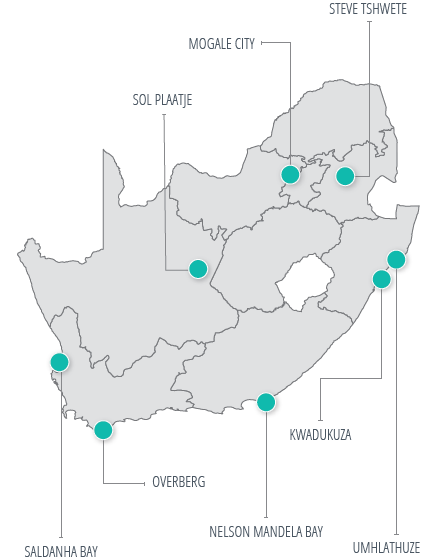
Twelve local climate solutions in five communities
After three years living with the various interventions, the three communities that received solar PV systems rated them the most valuable intervention of all. While they require a large financial investment, they provide caregivers and teachers with the reassurance that they can continue their work regardless of power outages or fluctuating electricity rates.
At Doornkop Community Centre, the 18kW system provides the centre with enough electricity to meet all their needs. While they are still connected to the national electricity grid, they never make use of it. They were even able to bring in additional services like aftercare and a doctor. The Mphe-Thuto Primary School uses 50% less electricity than before and when blackouts occur, they can supply other schools in the area with power for administrative tasks. The Grootkloof Environmental Education Centre’s 4kW system also provides sufficient electricity to continue work when the power is out and significantly lowers the electricity bill. All the solar PV systems are still in working order three years later and maintenance is either done by the community itself or by one of the implementing partners.
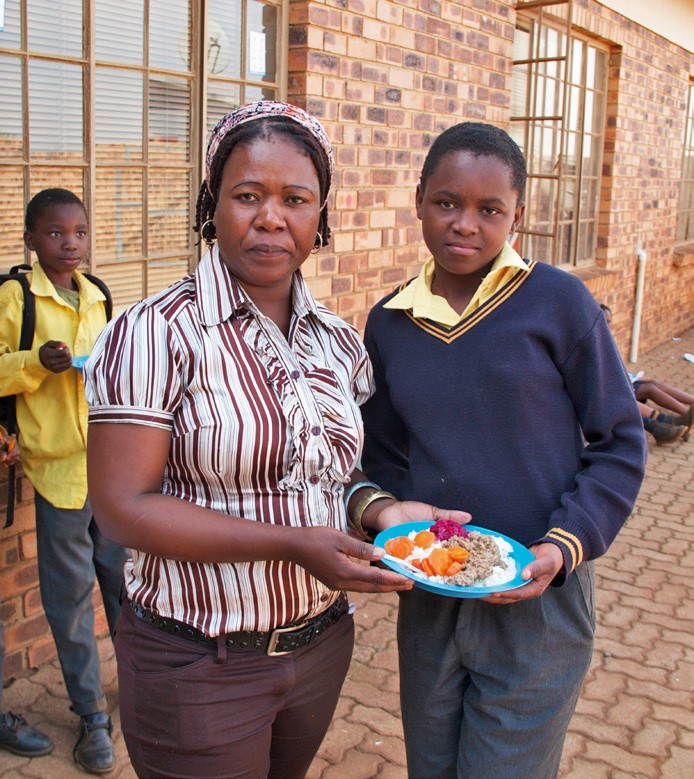
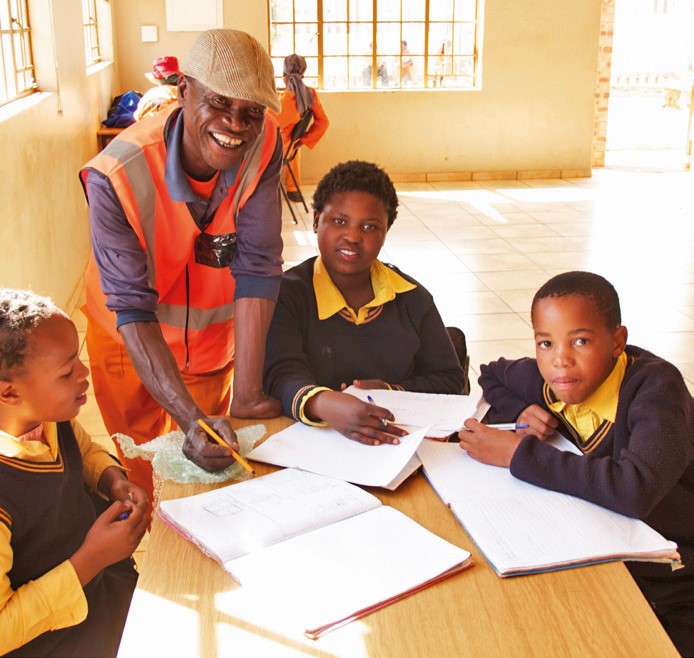
Solar water heaters
Solar water heaters are often deployed as part of sustainability programmes, but it’s not often one hears whether they’re successful in the long term. For this project, they had a mixed success rate. At Doornkop Community Centre and Mphe-Thuto Primary, they are still operational and have saved a combined 16.8 tonnes of CO2 in the last three years since installation.
However, at the Groutville Care Homes they required more maintenance than the community was able to provide and many have fallen in disuse because of leaks or low pressure. At Grootkloof Environmental Education Centre, the cylinder is too far away from the showers, so a lot of heat is lost, and the community opted to install an additional electric hot water cylinder.
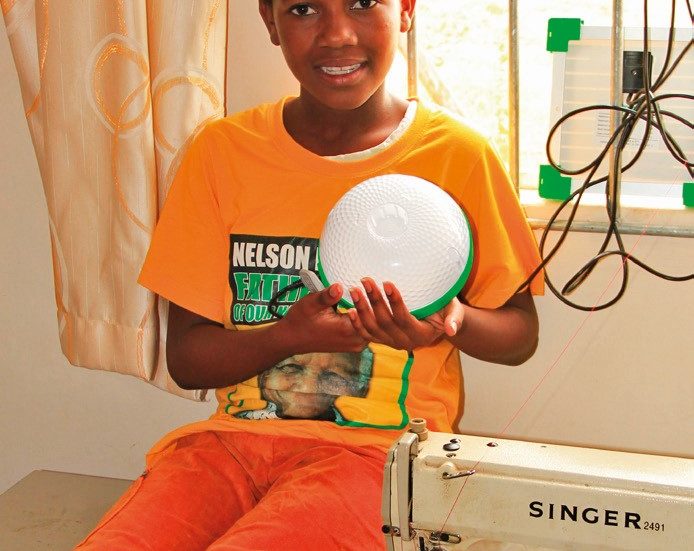
Rainwater harvesting system
A simple system catches rainwater from the roof and into a tank and the caregivers at Groutville Care Homes, who look after 6-8 orphans per house, are immensely grateful for them. They no longer need to fetch water from communal standpipes and can use the water for washing clothes, watering the food garden and cleaning their homes.
At Groofkloof Environmental Education Centre, the system has an additional filtration function that filters the water to potable standards. This reduces the community’s need for municipal water, which is a major benefit in Nelson Mandela Bay Municipality, as it’s in the midst of an extensive drought.
Mobile LED solar lights
The Mobiya lights by Schneider are cost-effective and provide both a light and an outlet for cellphone charging. These are particularly appreciated at the Groutville Care Homes and the house mothers name these seemingly simple solutions the most valuable intervention of the entire project. For the first time, the children have safe lighting at night and a light to take with them when they use the bathroom outside. On sunny days, they recharge easily during the day.
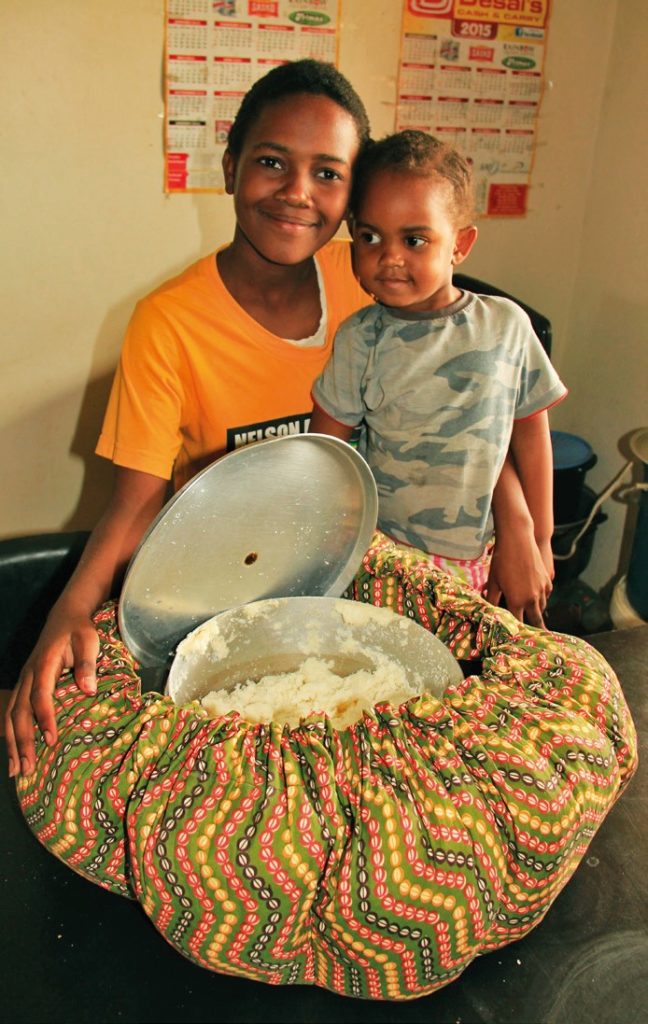
Wonderbags
Wonderbags are insulation cookers that reduce energy costs and the amount of water needed for cooking. At the Groutville Care Homes, the house mothers are especially reliant on them to prepare samp and beans, as it has a long cooking time and is a staple in the kids’ diet. Additionally, the house mothers have started using them to keep the infants’ bottles warm, thereby making feeding times more manageable.
Counter composting
This simple, low-tech intervention allows community members to collect organic waste in the kitchen and convert it into nitrogen-rich compost for the garden. In most cases, the communities have continued using these containers. At Groutville, they’ve all gotten lost or broken, but that didn’t curb the composting efforts, as the mothers simply use other containers now. At the Empangeni Library teachers were so inspired that they started a broader recycling initiative.
Urban food gardens
The aim with the food gardens was to bring fresh, healthy produce within easy access of these communities while teaching them about living close to the soil. The teachers and pupils of the Mpho-Thuto Primary School are inspired examples of the potential of an urban food garden. Today it is run by a full time staff and supported by parents who volunteer their time. In return, parents learn valuable skills for subsistence farming and receive some vegetables. The vegetables also supplement the school lunches. The food garden forms part of the learners’ life skills programme at school where they learn how to plant vegetables and monitor their growth and care.
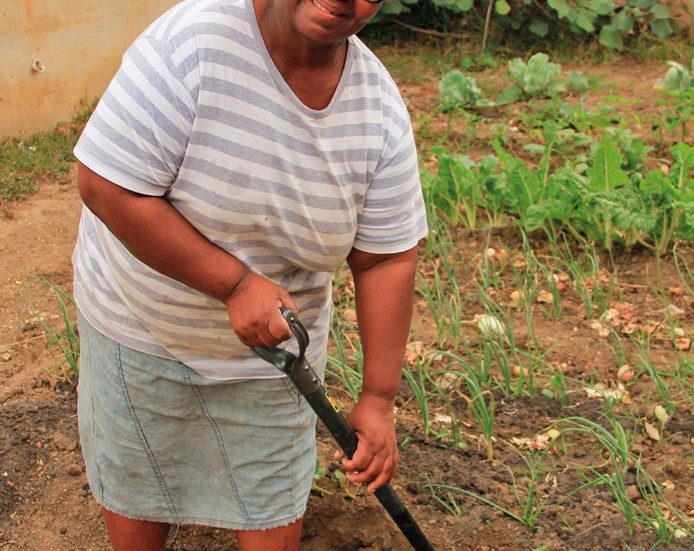
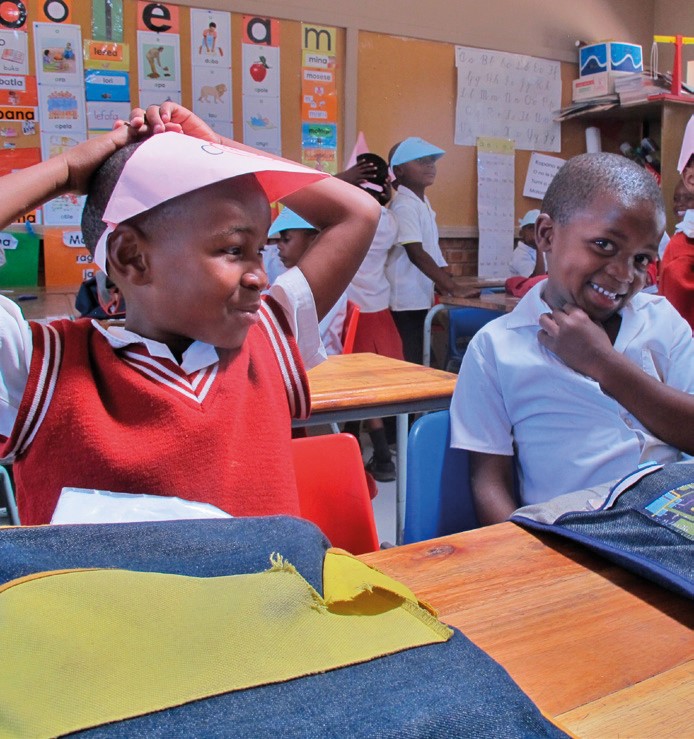
Ownership is key to success
Three years later, most of the 12 solutions are still in use to some extent, with the solar PV systems, food gardens, rainwater harvesting systems and solar lights coming out as the favourites. The major key to the success of these interventions is ownership. If the community takes ownership of the project, makes an effort to learn how the technology works and invests time in maintenance, the solutions were much more successful and community members often took the solutions even further into bigger projects.
Other learnings, including how to manage the maintenance and security of solar PV panels and solar water heaters especially, are detailed in the full publication, Showcasing Sustainable Solutions in Africa: A follow-up on Urban-LEDs community initiatives in South Africa.


